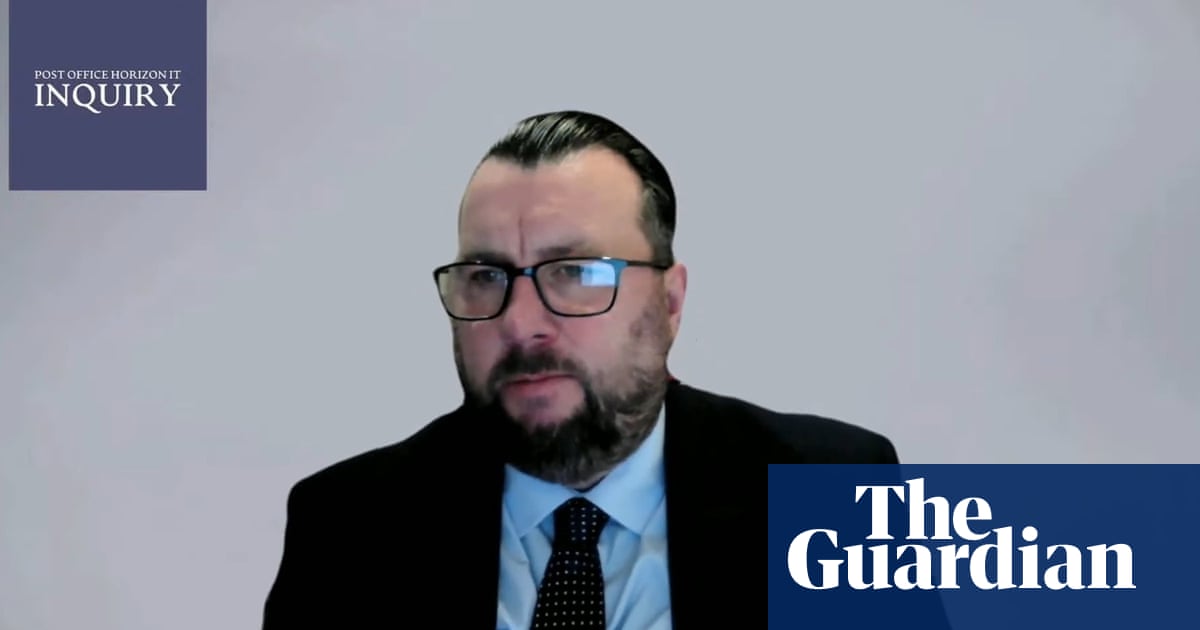
The lawyer responsible for deciding to prosecute a post office operator who subsequently lost her business, and suffered a ruptured thyroid from the stress of the ordeal, has told the inquiry into the Horizon IT scandal that he was never shown information that may have stopped the case going to court.
Kevin Shiels, now a senior public prosecutor at Northern Ireland’s Public Prosecution Service (PPS), was responsible for deciding that there was enough evidence to prosecute Maureen McKelvey in 2004 for the theft of £4,600 from her Post Office in Clanabogan.
McKelvey was tried and found not guilty but was forced to sell the business at a significant loss. She became bankrupt and also required major surgery after her thyroid ruptured due to the stress of the five-year ordeal fighting the allegations.
“I lost my business, my health and my reputation,” she has said.
Faults in the Horizon IT system resulted in the Post Office wrongfully pursuing and prosecuting hundreds of post office operators for theft, fraud and false accounting in what has been called the most widespread miscarriage of justice in UK history.
McKelvey was prosecuted on the basis of evidence provided by the Post Office, led by the former Post Office investigator Suzanne Winter, to the Police Service of Northern Ireland (PSNI).
The PSNI then decided whether there was potentially a case to be pursued, with the final decision made by the Department of the Director of Prosecutions for Northern Ireland, the forerunner of the Public Prosecution Service.
On Wednesday, Shiels told the public inquiry into the scandal that the investigation had determined it was theft through “deliberate action and not error”.
However, he agreed that alternative possibilities put forward in McKelvey’s defence, that it may have been either human error inputting transactions or a problem with Horizon, were not sufficiently explored as a reasonable line of inquiry that may have changed the decision that there was enough evidence to prosecute.
Shiels said that he had a lack of knowledge of the Post Office accounting practices and the Horizon IT system, built by the Japanese tech firm Fujitsu, and was too reliant on its own investigations.
“I was reliant on people who provided the information,” he said, agreeing with the suggestion that it was not “balanced or objective” for the Post Office to effectively be leading the investigation into a person it wanted to prosecute.
Shiels told the inquiry he was unaware that McKelvey’s branch continued to show discrepancies after her first interview under caution and after a Post Office special audit, a time she was under intense scrutiny, suggesting that the discrepancies were not a result of theft.
Shiels said he was never made aware of a number of documents shown at the inquiry that revealed the existence of issues relating to Horizon, or that better data was available from Fujitsu if requested as well as helpline call logs that showed McKelvey was having problems and discrepancies using the system.
In one document the Post Office said that the helpline call logs were “for information only and not formally available unless Fujitsu are involved”. Fujitsu did not provide a witness statement as part of McKelvey’s trial.
In another instance, which Shiels described as “extremely unusual” practice, forensic accountants acting for McKelvey went directly to Winter, the Post Office investigator, for information, which he said he was never made aware of.
“That request was sent to Winter, keeping the police and DPP out of the loop entirely. It was ‘for information’, they weren’t asking the DPP to act on it,” he said.
Shiels was asked how important the information he was not made aware of at the time may have been to the decision that there was enough evidence to prosecute McKelvey for theft.
“Very relevant,” he said. Asked if it would have prompted a reassessment of the threshold test for prosecution, he replied: “Yes”. And asked if it might have changed whether a case was brought at all, he said: “It may well have done.”
On Wednesday, Fujitsu’s finance chief apologised to the wrongfully convicted Post Office workers and their families involved in the Horizon IT scandal and said the Japanese company would work out the amount of compensation when the direction of the public inquiry became clear.












